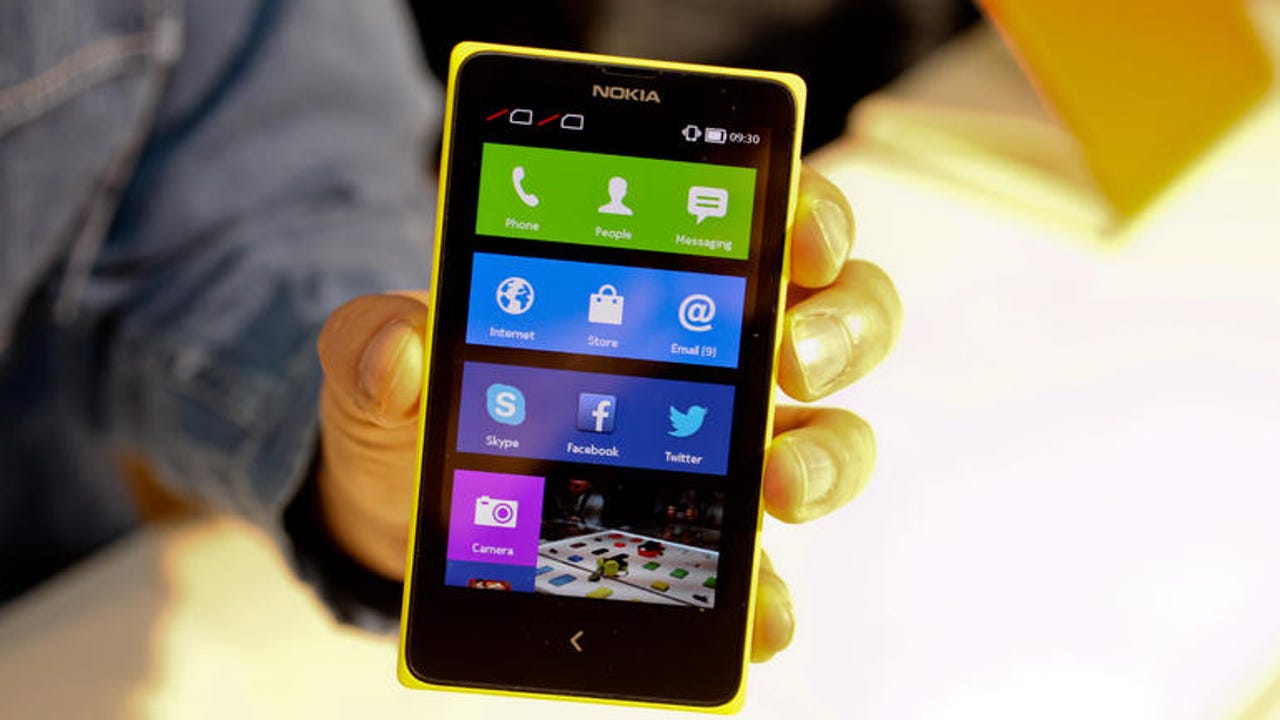Forget cracking the US: Microsoft and Nokia have more important things to worry about


The sale of Nokia's devices and services business to Microsoft will be completed this week. First announced in September last year and supposed to close in the first quarter, the deal is now all but done: Nokia will carry on as a Helsinki-based networking and patents company, and the handset business passes to Redmond.
The last few years have seen Microsoft and Nokia facing a similar challenge — how to maintain their dominance in markets they once defined, but which have since moved on without them.
In Microsoft's case, the desktop OS market that made its fortune is being eroded by the rise of tablets; for Nokia, despite creating the smartphone market with its Symbian handsets, it now trails way behind most well-known handset makers.
A union between Microsoft and Nokia seems inevitable in retrospect. Microsoft needed a handset maker dedicated to Windows Phone after so many others former supporters have fallen away, and Nokia's mobile business needed a safe haven.
Nokia was Europe's tech success story — its brand is still solid on the continent, and that is reflected by moderate uptake for Windows Phone in several countries. It may not be the biggest mobile maker in Europe, but it still has a presence Microsoft can build on.
However, even in its heyday Nokia never really cracked the US. While globally it was outselling every smartphone and feature phone maker you could name, that lack of US success didn't seem overly important. And even now, while Redmond is likely to bring its full marketing and channel might to bear on shifting mobile units on its home turf, chasing US market share may not be the best use of Microsoft and Nokia's combined resources.
Nokia has always made a good showing in emerging markets, customising its phones to suit the local environment with tweaks such as a heavy emphasis on durability and a data-compressing browser aimed at tackling challenges that Western consumers didn't face.
Despite recent wobbles in its non-smartphone business in developing markets, Nokia is still a force to be reckoned with in many of them. It's done well in growth markets with cheap, reliable feature phones, and it must now seek to keep hold of that position in the face of cheap, reliable Android smartphones. It's still displaying that same local sensitivity though, making sure its emerging market-focused X range come with BBM installed — the service remains hugely popular in the likes of Indonesia, for example, one of the world's largest mobile markets.
BlackBerry Messenger remains a major selling point here that Nokia even slapped a BBM sticker on the boxes of Nokia X pic.twitter.com/9kXqnc6K37
— Aulia Masna (@aulia) April 16, 2014
In many growth markets, Samsung and Apple are minority players, and smartphone penetration is low even in the face of comparatively high mobile uptake — so there's plenty of room for Nokia to grow here. And in areas where individuals' mobile phones are their first, and often only way, to access the internet, focusing on emerging markets will give Microsoft a chance to establish a consumer presence where previously it may have had little or none, and lock users into its ecosystem early.
Chasing the US market is understandable — who doesn't want Apple levels of margin, or Samsung levels of shipments, in the world's third largest mobile market? But it's an unforgiving one, locked up by Samsung and Apple's high-end devices. China, however, could represent a more interesting prospect. The rising star in the country is Xiaomi, whose mix of low prices and decent features means it's bigger than Apple in the world's largest mobile market.
In countries where price has a huge impact on the buying decision, Nokia has smoothed out the cost differences between its high-end Nokia Asha device, low-end Nokia Windows Phone handsets, and the company's Android-based X phones — meaning for anyone that wants to trade up from a feature phone, there's a Nokia device in the right price bracket.
For those that don't want to or can't afford to, Nokia is still cranking out dumb-phone workhorses that will last for days without charge — handy in areas where power supply is erratic.
In many ways, Xiaomi represents the ideal for Microsoft: a company that sells solid devices cheaply, and makes money out of services — very much the vision Microsoft is working towards with its 'devices plus services' strategy. While emerging mobile markets in general, and China in particular, may not represent huge services revenue streams today, they're only going to go one way.
Microsoft has repeatedly stated that it wants to be a devices plus services company. Nowhere is the opportunity for it to do that greater than in emerging markets.